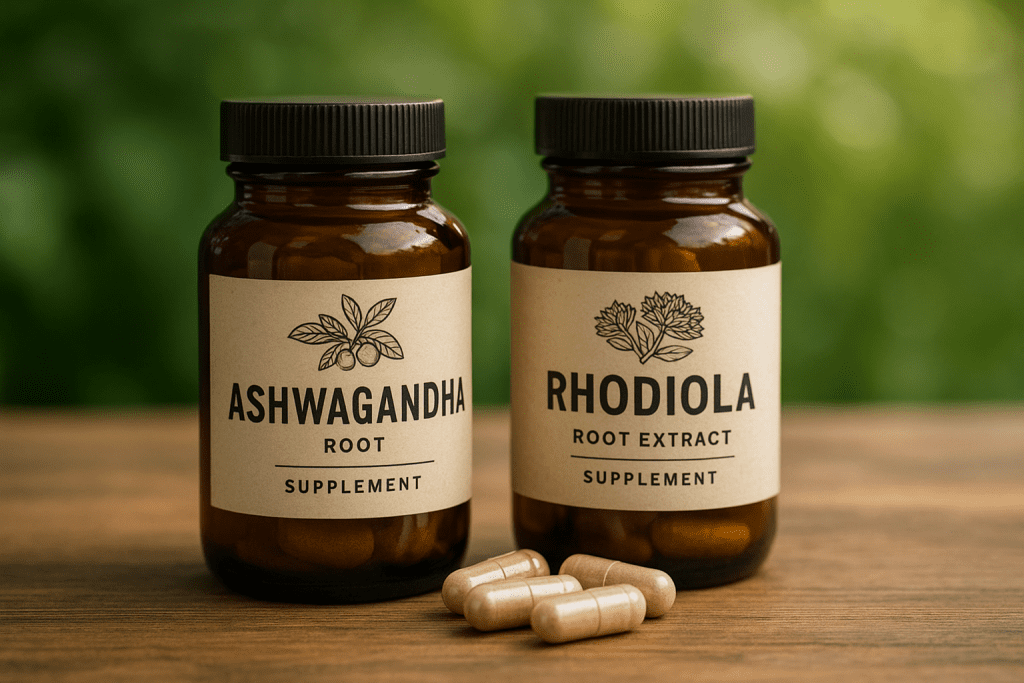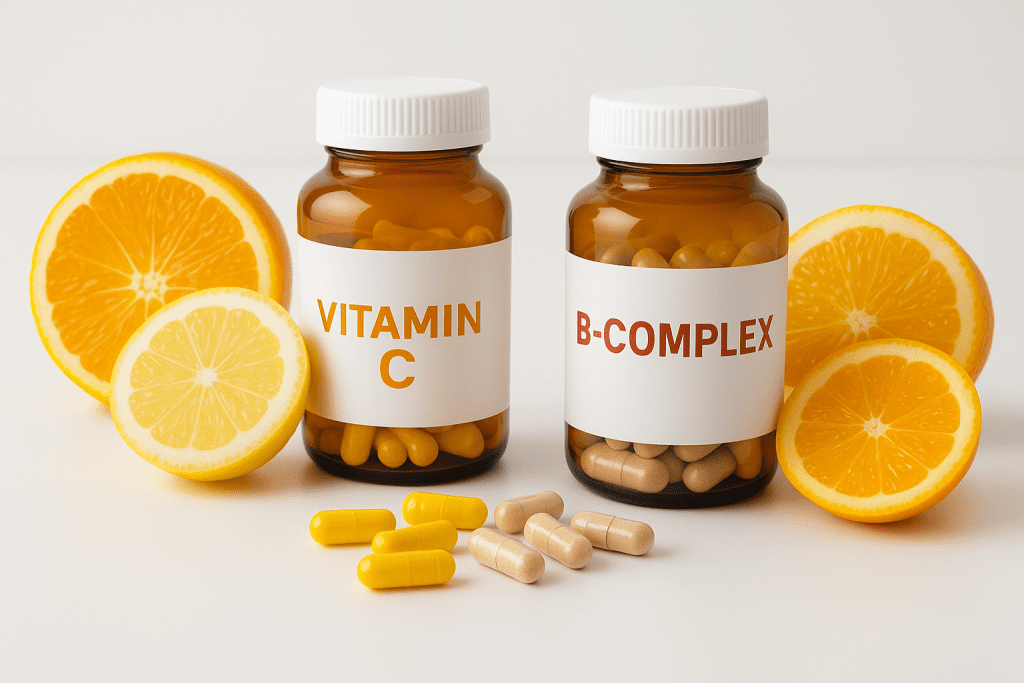Managing stress is no longer just about rest and meditation – it’s also about what you put in your body. If you’re dealing with symptoms of high cortisol, like fatigue, poor sleep, or anxiety, this guide breaks down the top supplements to lower cortisol levels, backed by science and trusted by experts.
Quick Answer: Best Cortisol-Lowering Supplements
These natural supplements are supported by clinical research for their cortisol-lowering effects:
| Supplement | Key Benefit | Best For |
|---|---|---|
| Ashwagandha | Reduces cortisol by up to 30% | Daily stress, anxiety |
| Rhodiola Rosea | Supports adrenal balance | Fatigue, brain fog |
| Phosphatidylserine | Lowers post-exercise cortisol | Athletes, high-performers |
| Magnesium | Regulates stress response | Poor sleep, irritability |
| Omega-3 Fatty Acids | Decrease inflammation & cortisol | Chronic stress |
| L-theanine | Fast-acting cortisol relief | Acute stress moments |
Understanding Cortisol: The Body’s Stress Signal
Cortisol is a hormone made by your adrenal glands in response to stress. It helps regulate metabolism, blood pressure, and your sleep-wake cycle. Naturally, cortisol peaks in the morning and drops by bedtime. But with chronic stress, this rhythm gets disrupted.
When cortisol stays elevated, it can lead to:
- Weight gain, especially around the belly
- Sleep problems, including insomnia
- Weakened immunity
- Anxiety, irritability, and depression
- High blood sugar and blood pressure
That’s why many turn to natural supplements that help lower cortisol levels and support the body’s stress recovery systems.
Top Herbal Adaptogens to Lower Cortisol

Ashwagandha: The Most Studied Adaptogen
Ashwagandha is one of the most effective natural supplements for reducing cortisol. Clinical studies show it can lower cortisol levels by up to 30% and improve symptoms of anxiety and stress-related fatigue (NIH).
How it works:
- Balances adrenal activity
- Modulates neurotransmitters like GABA and serotonin
- Supports a calmer stress response
Recommended by experts from Cleveland Clinic, it’s best taken daily for several weeks to see full effects.
Rhodiola Rosea: For Energy and Adrenal Support
Rhodiola helps your body adapt to stress by regulating cortisol and supporting adrenal function. According to Onnit, it’s especially useful for:
- Combating mental fatigue
- Improving focus under stress
- Balancing daily cortisol patterns
It pairs well with Ashwagandha and is often recommended in the morning to align with natural cortisol cycles.
Holy Basil (Tulsi)
Holy Basil has been used for centuries to promote emotional balance. It reduces cortisol while also supporting blood sugar and immune function (Dr. Lam Coaching).
Best for:
- Adrenal fatigue recovery
- Supporting multiple body systems (immune, endocrine, neurological)
Nutrients and Compounds With Cortisol-Lowering Benefits

Phosphatidylserine: Best for Physical Stress
Phosphatidylserine is a phospholipid found in cell membranes. It’s especially effective at reducing exercise-induced cortisol spikes – making it popular among athletes.
Studies cited by Life Extension show:
- 16-25% cortisol reduction with oral use
- Up to 45% when administered intravenously
It also supports mental clarity and testosterone maintenance post-exercise.
Omega-3 Fatty Acids: Inflammation Control = Cortisol Control
High-quality fish oil has been shown in randomized trials to reduce cortisol by up to 19% (PubMed).
Mechanisms include:
- Lowering inflammatory markers
- Supporting HPA-axis balance
- Enhancing resilience to stress
Aim for 1.5–2.5g EPA+DHA per day for best results.
Magnesium: The Relaxation Mineral
Magnesium plays a key role in nervous system regulation. Long-term use has been shown to reduce cortisol excretion and enhance mood stability (PMC).
Forms to look for:
- Magnesium glycinate (gentle on the gut)
- Magnesium threonate (crosses the blood-brain barrier)
Also helpful for sleep, muscle relaxation, and reducing symptoms of anxiety.
Vitamin C: Adrenal-Supporting Antioxidant
Your adrenal glands store high levels of vitamin C – and they use it rapidly during stress. According to Nenergy Boost, supplementing can:
- Reduce cortisol output
- Support hormone production
- Improve resilience to long-term stress
A buffered, time-release form may be easier on the stomach.
B-Complex Vitamins: Neurotransmitter Support
Each B vitamin plays a role in managing stress:
- B1 supports adrenal health
- B3 helps regulate sleep and mood
- B5 blunts overactive cortisol response
- B6, folate, B12 aid neurotransmitter synthesis
Together, these can help rebalance the stress system over time (Leah Hardy).
Emerging Supplements for Cortisol Support

L-theanine: Fast-Acting Calm
L-theanine, found in tea leaves, promotes relaxation within 20–30 minutes. It’s been shown to lower cortisol and improve cognitive performance during stressful tasks (Northwell Health).
Ideal for:
- Acute stress situations
- Pairing with caffeine to avoid jitters
Pterostilbene: Antioxidant Cortisol Modulator
This antioxidant compound, similar to resveratrol, shows early promise in lowering cortisol and supporting cognitive health. It works by modulating inflammation and HPA-axis signaling (PubMed).
Still emerging, but a potential future staple in stress supplements.
How to Choose the Right Cortisol-Lowering Supplement
Choosing the right supplement depends on your individual health goals:
| If You Want To… | Try This |
| Reduce daily anxiety | Ashwagandha, Magnesium |
| Support workout recovery | Phosphatidylserine, Omega-3s |
| Sleep better | Magnesium, B-complex |
| Handle emotional stress | Holy Basil, L-theanine |
| Support adrenal health | Rhodiola, Vitamin C |
Always look for third-party tested brands and consult with a healthcare provider before starting any new supplement.
Final Thoughts
Supplements like Ashwagandha, Magnesium, and Omega-3s offer research-backed support for lowering cortisol levels and improving your stress response. When paired with healthy lifestyle habits like sleep, movement, and mindfulness, they can be a powerful part of your wellness toolkit.
Looking for more support? Explore our guides on how magnesium affects stress and sleep.

